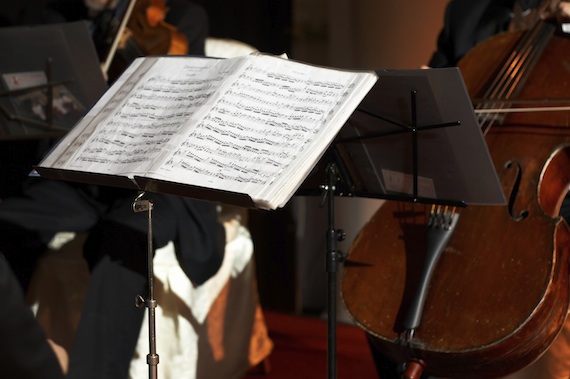
Franke Previte turned a handful of songs into a "lottery ticket" according to a great news story today. Image © iStockphoto/Thinkstock
Reuters just published an awesome article about songwriter Franke Previte, who lives in New Jersey, and wrote the hit songs “Time of My Life” and “Hungry Eyes” for the movie Dirty Dancing.
The copyrights have turned out to be a lottery ticket for the composer, providing him with a substantial stream of profits upon which to live. They are exactly the sort of asset that I tell you to collect: They generate cash, have very little financial cost to the owner / creator, and make money even as he sleeps.
Based on the interview, it seems reasonable to conclude that the compose is collecting somewhere between $340,000 and $645,000 annually from his copyrights, depending upon the year.
What impressed me most was that Previte credits his decision to turn down an offer of $1,000 per song for the licenses to “Time of My Life” and “Hungry Eyes” even though he had been trying to sell the songs for year. Instead, Previte said he negotiated $3,500 per song plus retained his copyrights.
Never, never, never give up your rights to a stream of future profits! Billy Joel did just that and made only $7,000 or $8,000 on his bestselling album The Stranger, which made several other people millionaires many times over. Ownership of assets matters. Keep your book copyrights. Keep your song copyrights. Keep your patents and trademarks. Negotiate on-going streams of revenue. You want cash to flow into your coffers and fill your treasury as you take your kids to park, sleep at night, and go out to dinner with friends.
My Internship at Warner Music Group
Now here’s a story I haven’t told many people. Back during my senior year of college, after getting the internship at the $5+ billion insurance group, I spent the next semester interning in the royalty department of Warner Music group in New York City. One of my jobs as lowly intern was to shove royalty checks for “mechanical” royalties on the song copyrights into envelopes, check them against a spreadsheet, and make sure everything matched.
The Warner Music Group site explains how the process works better than anything:
Music publishing involves the acquisition of rights to, and licensing of, musical compositions (as opposed to recordings) from songwriters, composers or other rights holders. Music publishing revenues are derived largely from mechanical, performance and synchronization royalties, while the digital exploitation of musical compositions presents an opportunity for future growth.
The music publishing business enjoys a more stable and diversified revenue stream than the recorded music business. Songwriters who are also recording artists often have their record deals and music publishing deals at non-affiliated companies. WMG, as the owner of the world’s third largest music publishing business, has the opportunity to benefit from successful singer/songwriters across the music industry, not just those signed to one of WMG’s record labels. The music publishing business is characterized by strong free cash flow, favorable working capital dynamics, low capital requirements and growing digital revenue streams.
Off topic, I do remember thinking it was somewhat ironic that I was earning more in online profits as a senior in college than many of the people who worked for the label full-time. But of course, no one knew that because who would have believed a twenty-something kid if he said, “Oh yeah, I traded aerospace stocks my freshman year and made a bunch of money on that, collect thousands of dollars a month in publishing royalties, and own an interest in an online retailer that we just founded?”
Besides some interesting anecdotes I picked up – the fact that the check to Cher’s management agency was made out simply to “Cher”, whereas even Madonna was always Madonna Ciccone or Boy Toy Productions – it was always fun to see how the artists spent their money. I recall that out of hundreds of pages, I had so much respect for Madonna because some of the rap groups I had never heard of charged all kinds of things to the label, draining their royalties – catering, limos, etc., – but I only remember ever seeing a single charge to her, which was for a sandwich and water, I think (but it’s been years). I’m guessing everything was handled through Boy Toy Productions, instead, but the point is, she was a great businesswoman.
Although I valued the experience, and the woman who was right over me, Carey, was wonderful, kind, and thoughtful – she would do well at any business – given my particular talents, part of me wishes I had instead swung an internship at Goldman Sachs or even Fidelity Mutual Funds up in Boston over a summer. The insurance internship was so awesome that nothing could compare to it afterward because by then, I knew I wanted to manage money for a living. It (the insurance internship) changed my life. I thank God for it and the generous people I met who explained the industry to me.
Anyway, I can tell you that the artists that were doing fine were the ones who owned their own publishing companies – like Tori Amos and Sword in the Stone Productions – because they would get a check not just for their performance, but for the right to use the song they composed. That is where the real money is. Always own your content.



